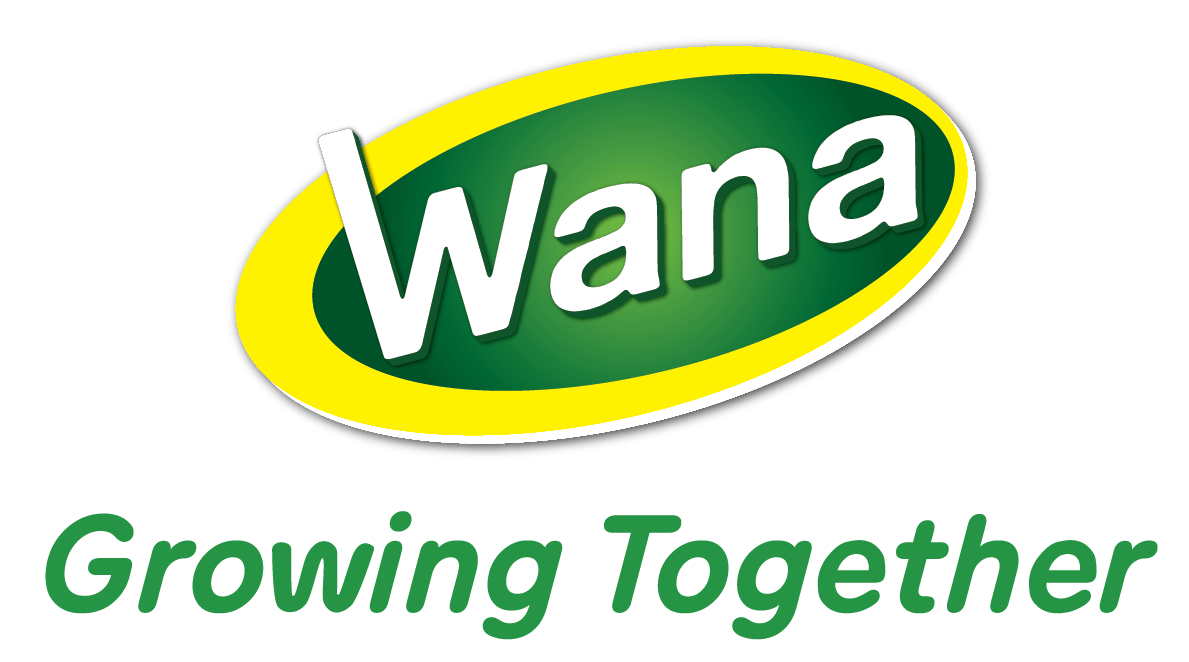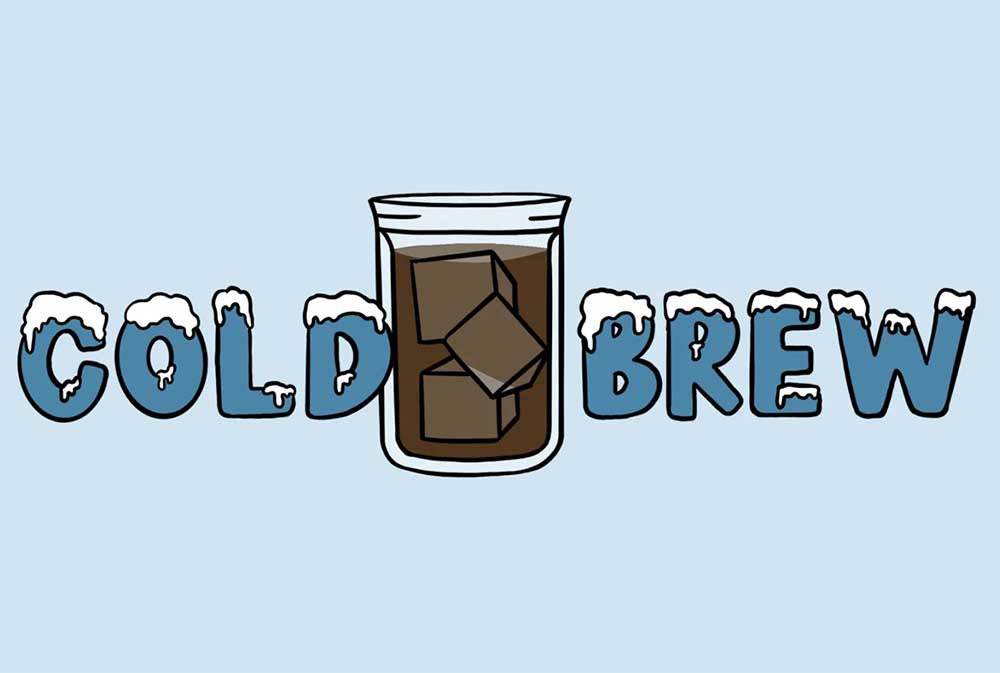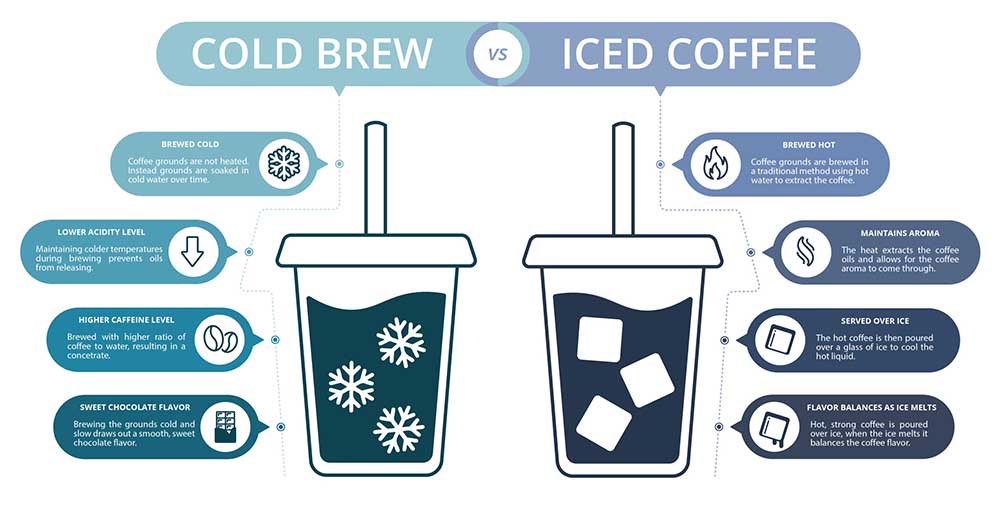In recent years, the demand for specialty coffee has seen a significant rise, with consumers seeking unique and high-quality options. One such trend that has gained popularity is private label cold brew. If you’re a coffee enthusiast or a business owner looking to delve into the world of private label beverages, this blog is your comprehensive guide. Join us as we explore the ins and outs of private label cold brew, with insights from a seasoned beverage manufacturer.
Read more: Ultimate Guide On Wholesale Private Label Juice By Bulk Juice Suppliers (P2)
What is Cold Brew?
Cold brew is a method of brewing coffee that involves steeping coarsely ground coffee beans in cold or room temperature water for an extended period, typically 12 to 24 hours. Unlike traditional hot brewing methods that use heat to extract flavors quickly, cold brew relies on time to slowly extract the coffee’s soluble compounds.
The process of making cold brew is relatively simple:
- Coarse Grinding: Coffee beans are coarsely ground to maximize surface area and enhance extraction.
- Steeping: The coarsely ground coffee is combined with cold or room temperature water in a container. The coffee and water mixture is left to steep for an extended period, allowing the flavors and caffeine to be gradually extracted.
- Straining: After steeping, the coffee grounds are filtered out, usually through a fine mesh or paper filter, leaving behind a concentrated coffee liquid.
- Dilution: The concentrated cold brew is often diluted with water or milk before serving, as it is highly concentrated and can be too strong for some tastes.
Private label cold brew refers to the process of partnering with a manufacturer to create a unique cold brew coffee product that can be branded and sold under your label. This allows businesses to offer a distinct and personalized cold brew experience without the need for extensive in-house production.
The process of making cold brew on an industrial scale in a factory involves several steps to ensure efficiency, consistency, and quality. Here is an overview of the typical process for manufacturing cold brew coffee:
Sourcing Coffee Beans:
Coffee beans are sourced from reputable suppliers, with an emphasis on quality and flavor. The choice of coffee beans can significantly impact the final taste of the cold brew.
Roasting:
The selected coffee beans are roasted to the desired level. Roasting preferences can vary based on the flavor profile the manufacturer aims to achieve.
Grinding:
After roasting, the coffee beans are ground to a coarse consistency. Consistent grinding is crucial to ensure uniform extraction during the steeping process.
Brewing Tanks:
Large brewing tanks, often made of stainless steel, are used to mix the ground coffee with cold or room temperature water. The ratio of coffee to water is carefully measured to maintain consistency.
Steeping:
The coffee and water mixture is allowed to steep for an extended period, typically ranging from 12 to 24 hours. This slow extraction process ensures a robust flavor profile.
Filtration:
After steeping, the cold brew liquid is separated from the coffee grounds. Industrial-scale filtration methods, such as large-scale filters or centrifuges, are employed to efficiently remove the grounds.
Pasteurization (Optional):
Some manufacturers choose to pasteurize the cold brew to extend its shelf life. Pasteurization involves heating the liquid to a specific temperature and then rapidly cooling it.
Quality Control:
Rigorous quality control measures are implemented throughout the process. This may include taste testing, pH level monitoring, and checking for any contaminants or irregularities.
Packaging:
Once the cold brew has been filtered and quality-checked, it is ready for packaging. Industrial machines fill and seal bottles, cans, or other containers, often in a nitrogen-rich environment to preserve freshness.
Labeling and Branding:
The final packaged products are labeled and branded according to the specifications of the private label or the manufacturing company. This may include custom labels, logos, and nutritional information.
Distribution:
The finished cold brew products are then distributed to retailers, coffee shops, or other outlets for sale to consumers.
The Distinctive Characteristics of Cold Brew
Flavor Profile
Cold brew’s flavor profile is a standout feature, appreciated by coffee connoisseurs and casual drinkers alike. The extended steeping process in cold water results in a smoother, less acidic, and less bitter taste compared to traditional hot-brewed coffee. The slow extraction of compounds imparts a rich and nuanced flavor with subtle undertones, making it an ideal choice for those who enjoy a milder and more balanced coffee experience.
Caffeine Content
Cold brew is often recognized for its higher caffeine content, attributed to the prolonged steeping time during the brewing process. The extended contact between coffee grounds and water allows for a more comprehensive extraction of caffeine. However, what sets cold brew apart is its flexibility in caffeine customization. By diluting the concentrated cold brew with water, milk, or alternative beverages, consumers can adjust the final caffeine content to suit their personal preferences, offering a versatile option for both the caffeine enthusiasts and those seeking a milder kick.
Serve Over Ice
Cold brew’s popularity is heightened by its refreshing and cooling nature, thanks to its customary serving over ice. This method of presentation not only enhances the overall sensory experience but also makes it an appealing choice, especially during warmer seasons. The ice not only chills the beverage but also minimizes dilution, ensuring that the cold brew maintains its robust flavor even as it gradually reaches a more sippable temperature.
Customization
Cold brew’s versatility extends to the realm of customization, allowing consumers to tailor their coffee experience to their liking. Whether it’s a touch of sweetness, a flavored twist, or the creamy addition of milk, cold brew serves as a blank canvas for personalization. Additives like sweeteners, flavored syrups, or alternative milks can be introduced, transforming the cold brew into a customized beverage that aligns with individual taste preferences. This adaptability makes cold brew not only a beloved choice among coffee enthusiasts but also a canvas for creativity in the ever-evolving world of coffee culture.
Benefits of Making Private Label Cold Brew For You Business
Brand Customization
Private label cold brew offers an unparalleled level of brand customization. When partnering with a beverage manufacturer for private labeling, businesses gain creative freedom to customize their brand image, packaging, and flavor profiles. This level of personalization allows for the creation of a unique and distinctive identity in the market. From designing eye-catching labels to tailoring flavor profiles to match specific target audiences, private label cold brew provides a canvas for brand expression that goes beyond what is achievable with mass-market products.
Cost-Effective
One of the significant advantages of private label cold brew is its cost-effectiveness. Setting up an in-house production facility for cold brew involves substantial upfront investments in specialized equipment, expertise, and time. Private labeling eliminates these initial financial burdens, allowing businesses to focus their resources on marketing, sales, and building their brand. By outsourcing the production process to an experienced beverage manufacturer, businesses can streamline operations and allocate resources more efficiently, ultimately contributing to a more cost-effective and sustainable business model.
Quality Assurance
Partnering with an established beverage manufacturer for private label cold brew ensures a high level of quality assurance. These manufacturers bring years of expertise and a commitment to quality throughout the production process. From sourcing premium coffee beans to meticulous brewing and filtration, professionals in the industry adhere to strict quality standards. This commitment to excellence guarantees that the final product meets or exceeds the expectations of both the business and its customers. This level of quality assurance is crucial for building trust in the brand and fostering long-term customer loyalty.
Quick Market Entry
Private label cold brew provides a shortcut to market entry, allowing businesses to swiftly capitalize on the growing demand for specialty coffee. Developing an in-house cold brew production facility can be time-consuming, involving research, equipment procurement, and staff training. With private labeling, businesses can enter the market promptly, leveraging the expertise of a seasoned beverage manufacturer. This speed to market is particularly advantageous in the fast-paced and competitive landscape of the beverage industry, enabling businesses to establish a presence and gain market share without the delays associated with in-house production.
Read more: A Beverage Supplier Explains The Zero Alcohol Drinks Trends
In summary, private label cold brew offers businesses a strategic advantage by providing brand customization, cost-effectiveness, quality assurance, and a quick route to market entry. These benefits collectively contribute to a more efficient, agile, and competitive business model in the dynamic world of specialty coffee.
Private label cold brew presents an exciting opportunity for businesses to enter the booming specialty coffee market. By partnering with a reputable beverage manufacturer, you can bring a unique and high-quality product to consumers while focusing on building and marketing your brand. Embrace the trend, and let the world savor your personalized private label cold brew experience.






